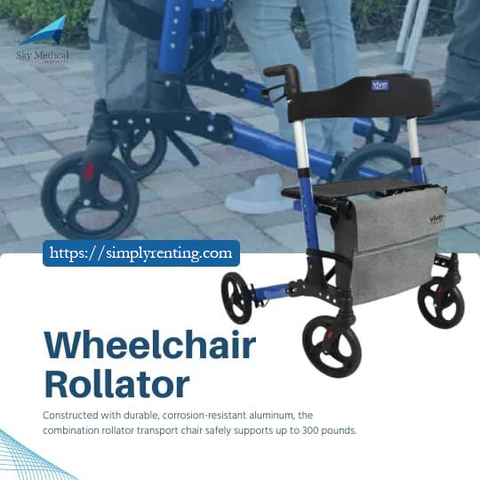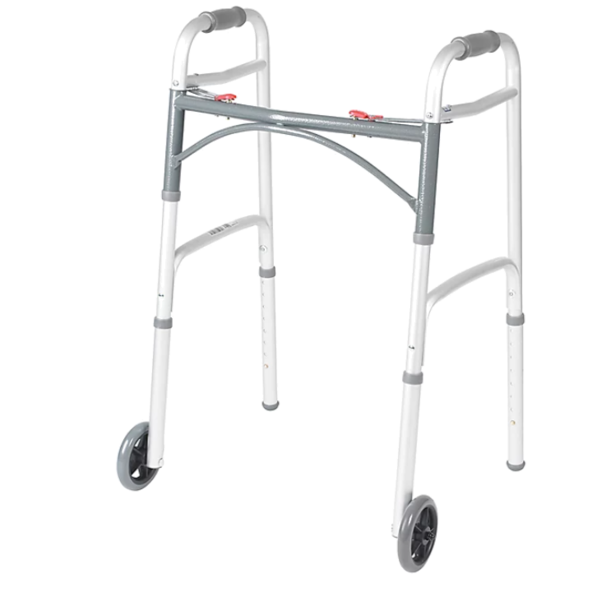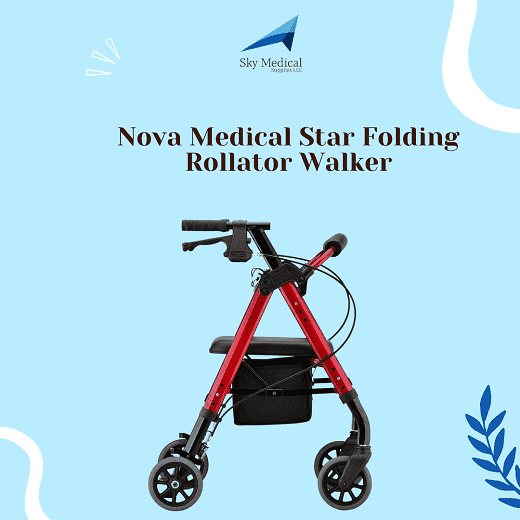
Mobility walkers have evolved over time. Zimmer frames, also known as walking frames or rollators, have been essential for individuals undergoing post-injury rehabilitation. These frames provide stability, support, and balance, helping patients regain their strength and independence.
Early Days
The first Zimmer frames were developed in the early 1950s by a German orthopedic surgeon named Dr. Zimmer. He created a walking frame with four legs and a seat, allowing patients to rest when tired. This frame was mainly used for individuals recovering from hip and knee surgeries.
Modern Innovations
Over time, the design of the Zimmer frame has undergone significant changes, with new features added to enhance its functionality. The modern Zimmer frames are lightweight and foldable, making them easy to transport and store. Some models come with wheels, making them ideal for outdoor use.
Advantages of Zimmer Frames
Zimmer frames offer several advantages for post-injury rehabilitation. They help reduce the risk of falls and support individuals with limited mobility. Zimmer frames also enable patients to move around independently and engage in daily activities, which can help improve their overall well-being.
The evolution of Zimmer frames has significantly contributed to the field of post-injury rehabilitation. These frames have provided a valuable tool for patients to regain their independence and improve their quality of life. As technology advances, we can expect to see further innovations in the design of Zimmer frames, making them even more beneficial for individuals undergoing post-injury rehabilitation.
Falls are the most common cause of injuries for older adults; thus, they are becoming a leading global health problem. As a result, promoting the community's "aging in place" is being challenged. Rolling walkers assist many people in navigating their surroundings. Mobility-related technology, which constituted around 2 percent of overall annual Medicare spending, including power wheelchairs, canes, and walkers, can assist in alleviating fall-related problems. In hindsight, products such as walkers and canes have slowly evolved aesthetically over the past decades. Beforehand it was offspring or caregivers who purchased these supplies and merely selected what was offered in medical supply stores—ease and good looks weren't always the primary considerations.
In this article, we will focus on different types of walkers. You'll get to choose one that fits your needs. A walker is one of the common mobility aids that offer support and stability to people while walking. Compared to canes or crutches, walkers are way more stable. The broad structure of the mobility aid provides support to the patients from every direction.
From standard to specialized, there are several walkers available in the market. You need to take your pick, depending on your physical condition. You must be aware of the various kinds of walkers to do that. In the following section of this article, we have created a list of walkers you can easily avail yourself of.
Types of walkers
Most of the time, the physical therapist evaluates the patients to identify their problems and to recommend the best-suited walker. The requirement of every patient is different. So it would be best to concentrate on your needs to choose your best-suited walker.
Standard use Walker
Unlike rolling walkers, a standard walker does not contain any wheels. It has four straight legs and a solid structure. You can adjust the walker's height and width depending on the patient's build. To use the standard Walker, the patient must pick the walker up and move it forward. The patient must ensure that all four legs of the walker are on the floor before moving forward. Most standard-quality walkers come with caps or gliders on the legs. These walkers are known as glider walkers. If used properly, walkers can help improve the patients' working patterns.
Rolling Walker or four-wheel walker
Instead of four long legs, you can place a couple of wheels on the front of the walker. With a rolling walker, the wheels will help to create a smooth walking pattern and give the patients a more natural gait. You can also use the rolling walker if the patient does not possess the ability to lift and move it while walking. The rolling walkers offer support in the patient's front or back as required. You must consult a physical therapist to determine the best option for the patient.
Anterior Rolling Walkers
The anterior ruling The walker offers support to the front section of the body. The base of these workers is larger, which gives this element more stability to stop. These walkers usually come with four wheels, and the patient needs to push them forward to walk.
Posterior Rolling Walkers
As the name suggests, the posterior walker provides support from behind the patient. You can find two-wheeled or four-wheeled posterior rolling walkers in the market. The back legs of the two-wheeled Walkers generally have rubber tips that prevent backward rolling. This type of walker can improve the patient's posture and help them maintain balance while standing or walking. To use this kind of walker, the patient should stand right in the middle and pull it from behind while stepping forward.
Even if you know all about the various types of walkers, you should consult with your doctor or physical therapist before choosing one. In the best-case scenario, your doctor will prescribe this device to you and provide all the required physical documentation. You can also contact the manufacturers to learn more about various walkers.
Sky Medical Supplies is your first choice to rent rollators in Denver, Colorado. We also serve the Colorado population around Parker, Littleton, Boulder, Aurora, Broomfield, Castle Rock, Highlands Ranch, Centennial, Englewood, Denver Tech Center, Cherry Lone Tree, Lakewood, Erie, Superior, Lafayette, Creek, Greenwood Village, Longmont, Westminster, Englewood, Golden, Arvada, Wheat Ridge, Brighton, Thornton, Elizabeth, and Franktown.